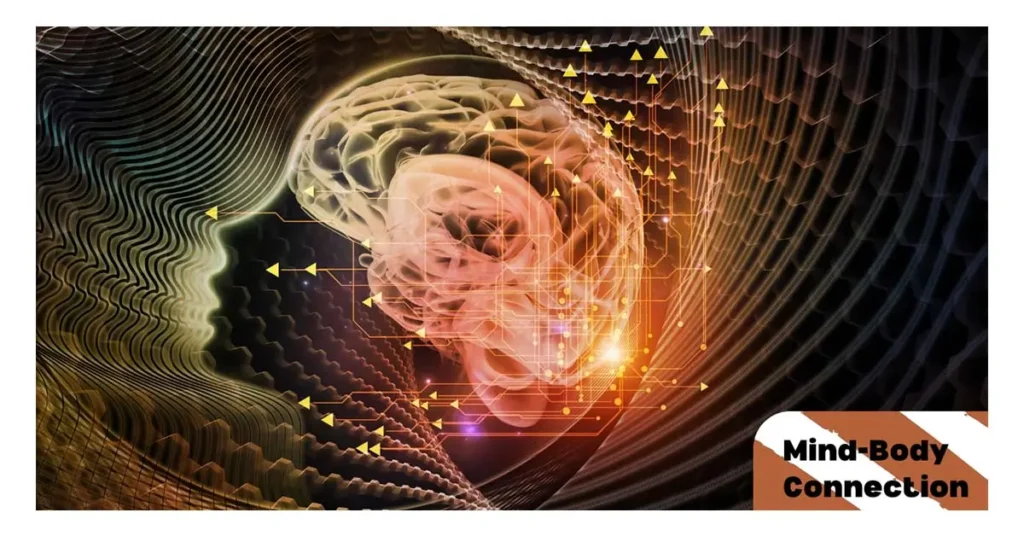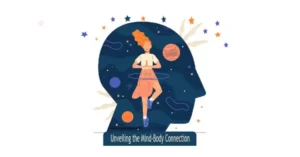Unlock the Mind-Body Link: How Mindfulness Rewires Your Brain and Body for Optimal Health. Unveil the transformative power of cultivating awareness for a better you. Read now for a more balanced and mindful life!
Thank you for reading this post, don't forget to subscribe!How Mindfulness Rewires Your Brain and Body for Better Health
Finding tranquility and connection between the mind and body has become a sought-after endeavor in a world filled with constant hustle and bustle. This quest has led many to explore the transformative power of mindfulness, a practice rooted in ancient wisdom and backed by modern science.
Understanding Mindfulness
At its core, mindfulness is more than a trendy buzzword; it’s a philosophy and practice that encourages living in the present moment. With its roots deeply embedded in historical methods, mindfulness has become a powerful tool for fostering mental well-being.
The Science Behind Mindfulness
Understanding the scientific foundations of mindfulness is essential for appreciating its benefits. Numerous studies have been conducted in recent years to shed light on how mindfulness practices affect our nervous system. Mindfulness can impact our brain’s structure and function, connecting our mental and physical states.
Mindfulness and Stress Hormones
One of the most intriguing aspects of mindfulness is its ability to regulate stress hormones, particularly cortisol. We’ll unravel the intricate dance between mindfulness and cortisol levels, shedding light on how this practice acts as a natural stressbuster.
Instant Calm in 5 Minutes: Mindful Techniques with Instant Activities to Reduce Stress Anytime, Anywhere
Physical Well-being and Mindfulness
Mindfulness is fully present and engaged in the current moment without judgment or distraction. It reduces stress and anxiety and brings various health benefits. Boosting the immune system can improve the body’s ability to fight off infections and diseases. Mindfulness can lower stress hormones like cortisol, which weaken the immune system over time.
Mindfulness reduces inflammation that causes chronic diseases like heart disease, diabetes, and cancer. Mindfulness practice helps reduce cytokine levels, proteins that affect inflammation. Therefore, incorporating mindfulness into your daily routine can positively impact your physical health and overall well-being.
Mindfulness Techniques
Are you new to mindfulness? We can help! Our practical tips make it easier to incorporate mindfulness into your daily routine. Mindfulness can reduce stress, improve mental health, and boost overall well-being.
Mindfulness is about being present, and acknowledging your thoughts and emotions without judgment is essential. We recommend trying techniques like mindful breathing, meditation, and incorporating mindfulness into daily activities.
Daily mindfulness improves mental clarity, focus, decision-making, and emotional regulation. So, don’t wait any longer; take the first step towards a more mindful life today!
Mindfulness in Daily Life
- Practice gratitude: Practice gratitude to focus on the positive aspects of life. This helps us stay present and open to creating a better future.
- Listen to your body: Listen to your body’s messages by checking in with sensations such as tension, aches, and heaviness. Learn more about building confidence through body wisdom to care for your body better.
- Tune Your Heart: Emotions are our body’s way of communicating with us. By tuning into our hearts, we can become more coherent with ourselves.
- Use your five senses: To practice mindfulness, focus on the present moment by observing your surroundings. Use your five senses to notice the sounds, smells, and actions around you. Take a few moments to engage fully in this exercise.
- Centering Exercise: One of the most straightforward exercises I recommend to my clients is the centering exercise. It only takes 30 seconds and helps you become more aware of your body and the present moment by centering yourself.
- Focus on your breath: To become mindful, focus on your breath. Notice your breathing and take five deep belly breaths while concentrating on your inhalation and exhalation. Repeat three times and practice multiple times daily.
- Observe your thoughts: Observe your thoughts and notice what comes up. Please take note and try it!
- Mindful Eating: Chew slowly and focus on your food while eating. This can improve digestion and overall digestive health. Next time you eat, put away any distractions. You might discover new things about your eating habits.
- Practice active listening: Focus on the other person when conversing, listening with your ears, heart, and intuition. Observe whether the quality of your discussions changes.
- Observe your surroundings: To connect with your environment, confidently observe your surroundings. Take charge of your present moment and pay attention to what’s happening around you, wherever you are. Practice mindfulness to appreciate nature and feel more connected.
Mindfulness for Better Focus
Maintaining focus and concentration is becoming increasingly difficult in today’s information-overloaded world. We might feel distracted and overwhelmed in our daily lives for many reasons. Electronic devices, social media, and the constant flood of information can all contribute to this feeling. However, practicing mindfulness can help us overcome these obstacles and reach our full potential.
Mindfulness means being present and engaged without judgment or distractions. We can train our minds to concentrate more effectively and enhance our cognitive abilities through mindfulness. This approach can improve productivity and performance in all areas of life.
Practicing mindfulness daily by focusing on breathing and ignoring distractions can calm our minds and enhance concentration. Additionally, we can incorporate mindfulness into our daily activities, such as eating, walking, or even working, by being fully present and engaged in the present moment.
Mindfulness is worth exploring if you need help maintaining focus and concentration in the digital age. Practicing mindfulness daily boosts cognitive abilities, productivity, and goal achievement.
Mindfulness and Emotional Well-being
A mindfulness practice can significantly improve our emotional well-being. Mindfulness trains our minds to regulate emotional responses, helping us manage stress and anxiety better. It can also foster gratitude and contentment.
Understanding mindfulness’s true potential requires an understanding of its dynamic aspects. By exploring how mindfulness can help us regulate our emotions and promote a positive mental state, we can unlock its full benefits and improve our overall well-being.
Mind-Body Connection
Let’s explore the intricate connection between the mind and body and meditate on meditation’s profound role in bridging these two facets of our existence.
Mindfulness and Brain-Rewiring
As we embark on this journey, we will delve deeper into the intricate concept of neuroplasticity and how practicing mindfulness can lead to significant positive changes in the brain. Neuroplasticity pertains to the brain’s ability to reorganize and form new connections between neurons in response to external stimuli, changes in behavior, and alterations in thinking processes.
This phenomenon is widely acknowledged in the scientific community and has significant implications for neuroscience research and the development of therapeutic interventions for neurological disorders.
By leveraging the principles of neuroplasticity, researchers and clinicians can devise strategies to promote the formation of new neural connections and enhance the brain’s ability to adapt to changing circumstances. Through mindfulness, individuals can witness remarkable transformative effects on their neural pathways and cognitive function.
Mindfulness involves intentionally focusing one’s attention on the present moment without any judgment or distraction. Mindfulness practice significantly affects the brain. Mindfulness can increase the volume of gray matter in the prefrontal cortex and profoundly impact cognitive function.
Mindfulness increases gray matter volume in the prefrontal cortex, improving cognitive function. Consistent mindfulness can alter brain structure and function, enhancing cognitive abilities and emotional regulation.
Mindfulness in the Modern World
Finding calm in a constantly stimulating world can be challenging. With technology and social media continually vying for our attention, it can be hard to disconnect and be present in the moment. However, finding ways to carve out space for quiet reflection and relaxation is essential for maintaining our mental and emotional well-being.
Spending time in stillness, whether through meditation, walking in nature, or unplugging devices, can help us think clearly and focus better.
The Holistic Approach of Mindfulness
By embracing mindfulness, we can address the root cause of our physical and mental discomfort. This holistic approach views the mind and body as interconnected, allowing us to find long-term solutions and experience improved overall well-being.
Through awareness and acceptance, we can cultivate a positive mindset and respond more constructively to our thoughts, emotions, and sensations. So, let’s start our journey towards holistic health and discover the benefits that await us through mindfulness.
Challenges in Practicing Mindfulness
If you’re new to mindfulness, you might find it challenging at first, but with some guidance and practice, you’ll be on your way to a more mindful and fulfilling life. We understand that you may face challenges, like staying focused or finding time to practice. We’re here to help you navigate these obstacles with practical tips and insights.
We aim to help you establish a realistic and sustainable mindfulness practice to achieve greater clarity and balance in your life. Using everyday language and short sentences, we’ll keep things simple and easy to understand. So whether you’re a beginner or an experienced practitioner, we’re here to support you every step of the way.
FAQs on Mind-Body Connection
Q. What is the mind-body connection?
Did you know that your thoughts and emotions directly impact your physical health? The mind-body connection highlights the powerful relationship between mental and physical well-being. Caring for our physical and psychological health is essential for a fulfilling life, as they are interconnected.
Q. What is the connecting link between body and mind?
The nervous system is often the mediator between the body and mind, facilitating communication and connection. The brain, spinal cord, and nerves create a network for communication between mental processes and physical responses.
Q. What are five ways to improve your body-mind connection?
- Mindfulness Practices: Engage in meditation and yoga to cultivate awareness.
- Regular Exercise: Physical activity boosts mood and cognitive function, enhancing the mind-body connection.
- Balanced Nutrition: A healthy diet contributes to mental and physical well-being.
- Quality Sleep: Maintaining a harmonious mind-body connection requires quality sleep.
- Managing Stress: Deep breathing and progressive muscle relaxation can relieve mental and physical tension.
Q. What causes a mind-body to disconnect?
Chronic stress, trauma, unhealthy habits, mental health issues, societal expectations, and a lack of self-awareness can cause a disconnect between the mind and body. To improve this connection, adopt holistic approaches and mindfulness practices to restore balance.
Conclusion on Mind-Body Connection
After exploring the mind-body connection using mindfulness, we can conclude that this ancient practice is a timeless key to unlocking a harmonious existence, not just a trend. In a world full of noise and chaos, mindfulness emerges as a beacon of tranquility, providing a sanctuary for the mind and a tonic for the body.
Let’s take a moment to reflect on the profound wisdom we’ve discovered, dear reader. Mindfulness isn’t a fleeting escape but a sustainable journey towards a more centered and intentional life. It’s a daily invitation to pause, breathe, and reconnect with the present moment.
As you embark on the mindfulness journey, remember that it’s not about perfection but progress. Celebrate the small victories—the moments of clarity, the subtle shifts in focus, and the newfound resilience in the face of challenges. Mindfulness is the thread that weaves the disparate elements of our existence in the tapestry of life. It’s a practice that empowers us to navigate the complexities of modern living with grace and resilience.
So, whether you’re an experienced practitioner or just starting your mindfulness journey, embrace it with an open heart. May your days be filled with conscious choices, mindful breaths, and profound well-being. As you say goodbye to these words, carry the spirit of mindfulness with you. Once strangers, the mind and body dance in unison—a symphony of balance and serenity. Let’s live each moment fully through mindfulness.
Inhale. Exhale. Embrace the harmony within.
Read more articles on Health and Wellness.
You may like to read:
User Experience and Usability of Health Information Technology




